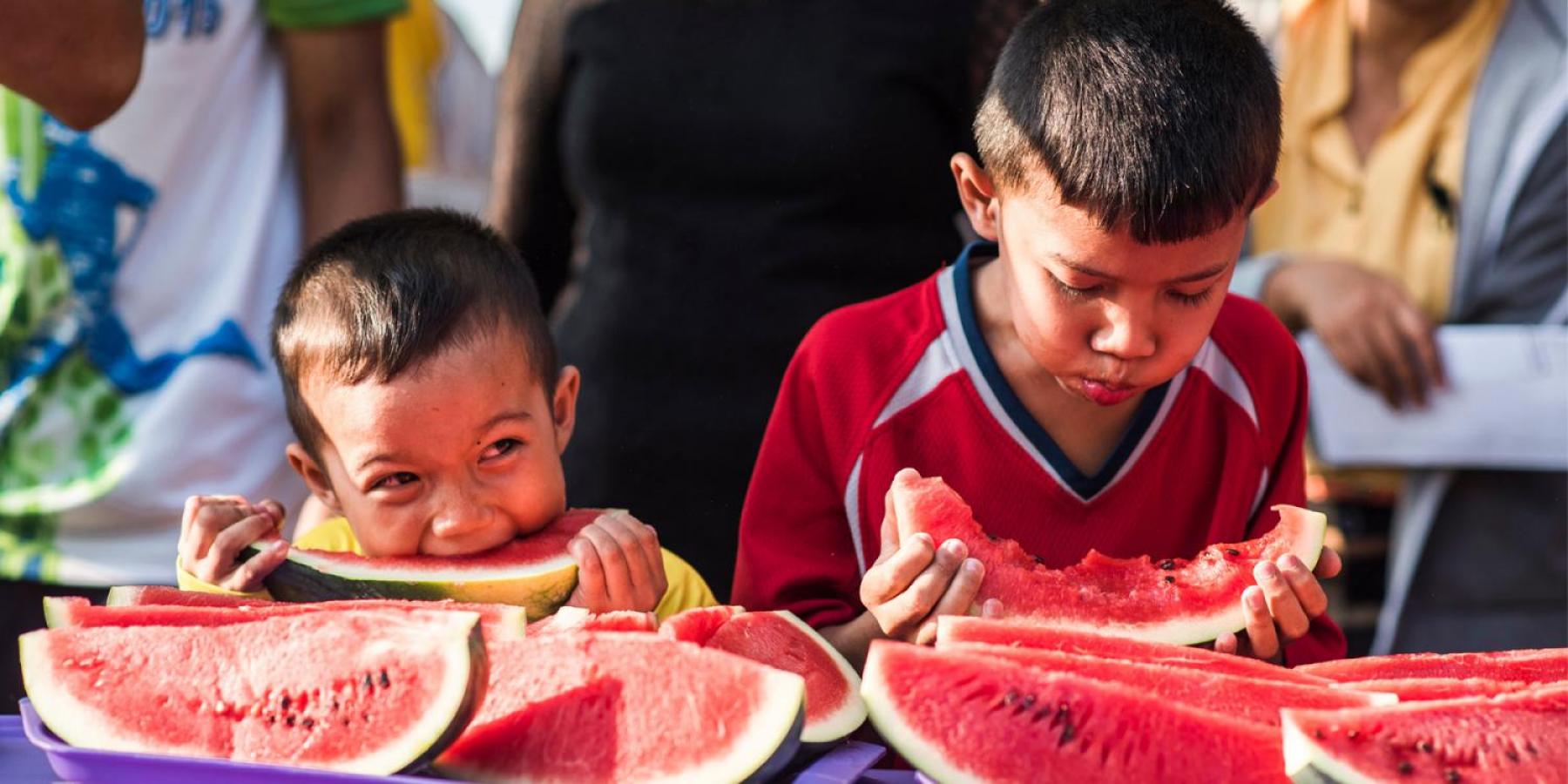Mexico's junk food bans
Bold action in Mexico leads the way for diet-related diseases
Limiting marketing and promotion of unhealthy food and drink products especially to children and adolescents, including online and in places where they congregate.
Bold action in Mexico leads the way for diet-related diseases
Limiting marketing and promotion of unhealthy food and drink products especially to children and adolescents, including online and in places where they congregate.Over several decades, there has been a dramatic shift in the way the world eats, drinks, and moves. Globalisation and urbanisation have paved the way for a rise in convenience food and drinks products, junk food, and eating out, with fewer people growing or making their food from scratch.
At the same time, the global prevalence of diet-related noncommunicable diseases such as type 2 diabetes, overweight and obesity, cardiovascular diseases (heart disease) and stroke, and hypertension (high blood pressure), and some cancers are increasing.
This is not surprising. As people move less and diets become dominated by ultra-processed foods and beverages high in fats, sugar, and salt – the number of people living with diet-related NCDs will continue to rise.
For example, diabetes is one of the top ten causes of death globally. There are 537 million adults living with diabetes – that’s 1 in 10 people. This number is predicted to rise to 643 million by 2030 and 784 million by 2045.
But a person’s ability to maintain a healthy diet is often not within their control – it is influenced by the food environment where they live, early life nutrition, income, and accessibility of healthy foods. Ultra-processes goods have a long shelf life, making them appealing to both supermarkets and consumers – especially among lower income families. They are also typically backed by intensive marketing by the industry, and especially to children.
While countries have committed to a globally agreed target to halt the rise in diabetes and obesity by 2025, the diabetes epidemic continues to worsen. This is especially true of low- and middle-income countries – where over 80% of all deaths from diabetes take place, but this chronic disease is prevalent in every country.
Mexico has one of the highest burdens of diet related NCDs and obesity in the world. Around three-quarters of people in Mexico live with overweight or obesity, including one-third of all children. This is compared to just 20% of the adult population in 1996. Diabetes prevalence has risen in parallel, which propelled the government to act.
This has been driven by cultural shifts in diet, from healthier and perishable goods to consumption of more ultra-processed and packaged goods which are normally high in added sugars, salts, fats and lower in nutrients.
Mexico has been taking big steps to improve health by reducing the high prevalence of largely preventable chronic, but the government and health civil society have faced fierce challenges from the big businesses behind the products that are making people sick.
As the pandemic took hold in 2020, and world leaders debated the crisis, the Mexican Minister of Health drew attention to how neglecting to prevent NCDs had made the world’s people more vulnerable to the novel coronavirus. Health authorities urged Mexicans to transition to healthier diets and habits to reduce the COVID-19 burden.
During the summer of 2020, in the southern state of Oaxaca, some Indigenous communities physically blocked roads to trucks delivering processed foods and beverages so that people could return to healthy, traditional diets. Shortly after, the Oaxaca government passed legislation banning the sale of junk food to minors. Tabasco quickly followed suit, and many other states are now preparing to do the same.
Encouraged, Mexico’s Federal Senate recently passing a nation-wide law that will prohibit junk food from being included in school meals and make it illegal to sell junk food in the vicinity of school facilities. The Ley Anti Charra (Anti-Junk Food Law), applies to stores, schools and vending machines. Enforcement is complex, but there is strong public support to defend the health of the most vulnerable population: children.
The new law will also proactively support the establishment of healthy food outlets, and other countries, like South Africa, are being urged to introduce similar junk food and drink sale bans in schools to promote healthy school environments which nurture children’s bodies and brains.
These efforts to reign in the junk food industry’s modus operandi is a hard, long-term battle, and implementation of new laws often presents other hurdles, but Mexico has a track record of success in its determination and tenacity when taking bold actions to protect child health, and with patience other jurisdictions are similarly seeing the fruits of their investments NCD prevention.
Another courageous initiative producing successes in Mexico and around the world is a sugary drinks tax. Over the past decade, more than 50 jurisdictions have introduced taxes on sugary drinks, not only deterring people from buying those harmful products but potentially raising revenue for public health promotion efforts. This tac is projected to prevent 239,000 instances of obesity, of which around 40% would be among children.
One thing is for sure, with rates of obesity and diet-related NCDs rising in most countries, more must take bigger, braver steps like Mexico to fix food systems and protect children from the foods and drinks that are making us all sick.
*NCD Alliance acknowledges support from Resolve to Save Lives in the production of this video.